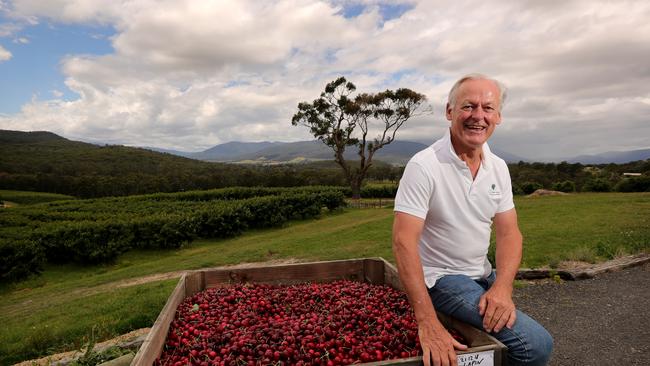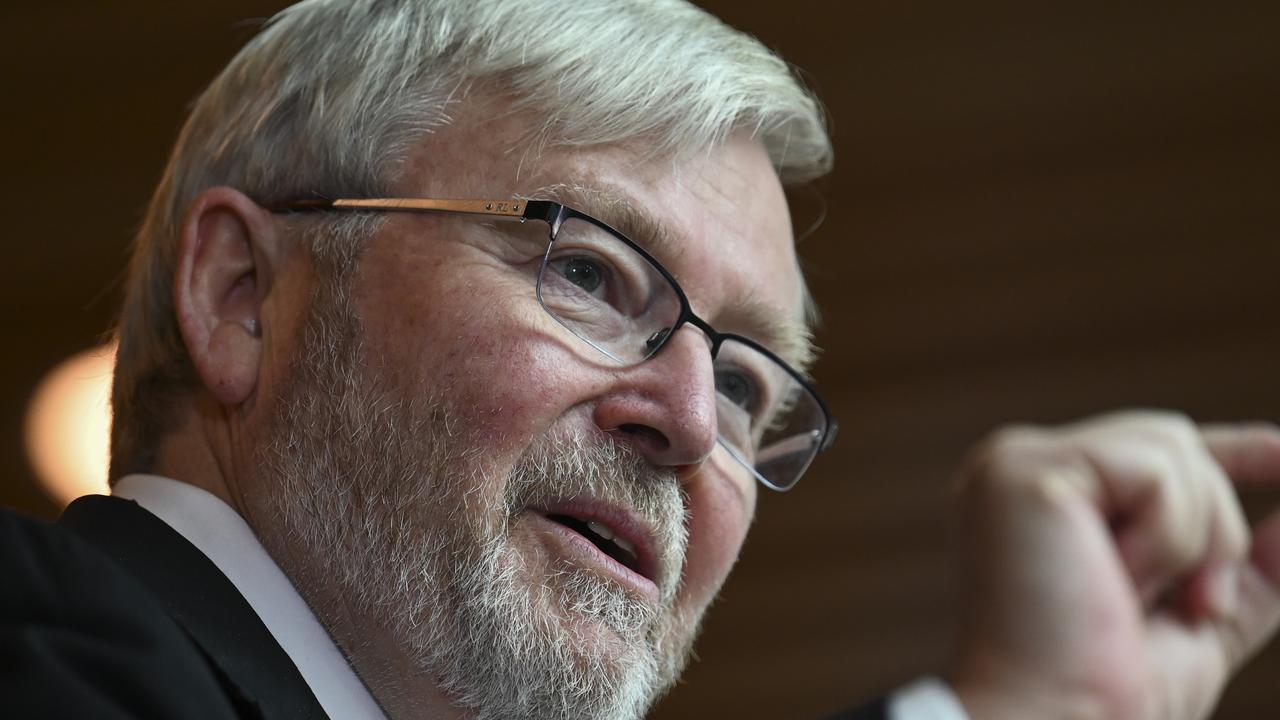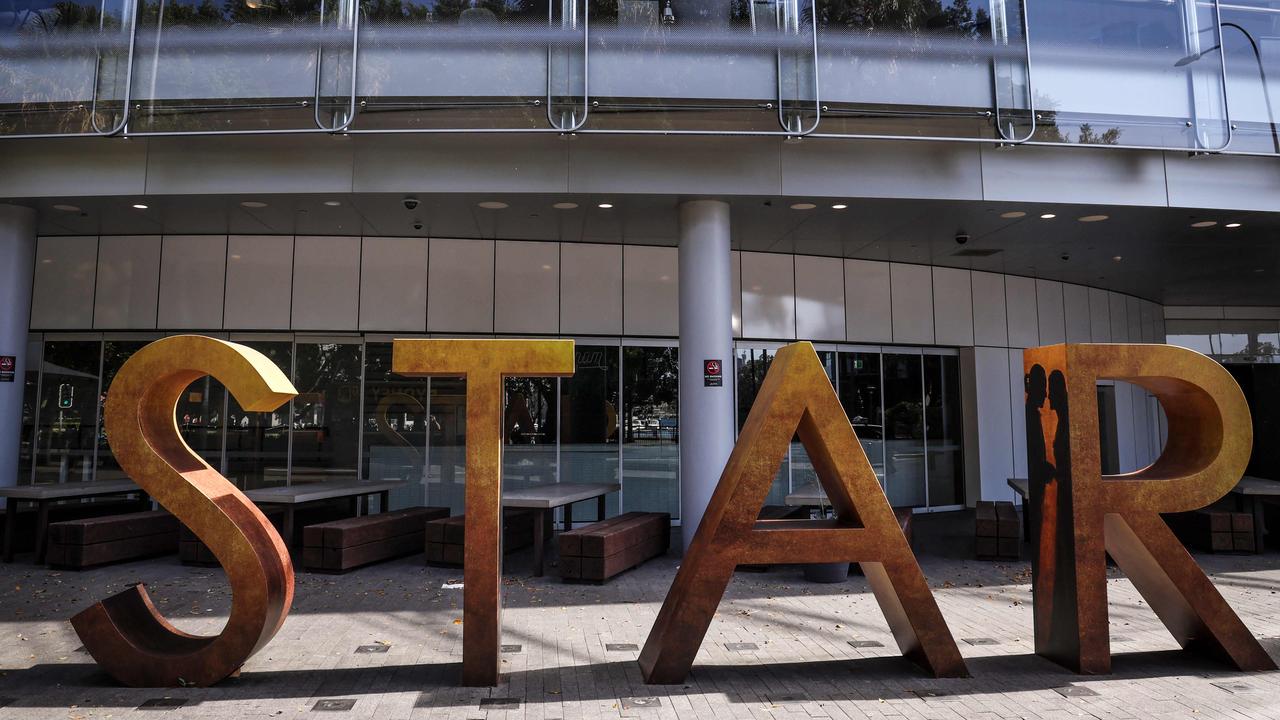Technology bears fruit for a super farmer
Andrew Fairley laughs when asked whether running a boutique cherry farm is harder than chairing the $15.5bn Equipsuper.

Andrew Fairley laughs when asked whether owning and running a thriving but boutique cherry farm in Victoria’s Yarra Valley is harder than his role as chair of the $15.5 billion Equipsuper industry superannuation fund.
“They’re both completely out of your control. One of them is dependent on weather conditions, and the other is dependent on market conditions. In one you try to do your best for members with your investments, the other you invest and hope to make a return eventually. But you certainly can’t control them.”
Fairley is using modern technology to control as much as he can at his Yarra Valley Cherries, the boutique farm he and partner Natasha Bowness established five years ago when they bought a rundown 130 acre (52ha) farm about an hour east of Melbourne.
Drones guided by Google Maps fly over the 45 acres of cherry trees to scare birds away, while a state-of-the-art grading machine takes 30 pictures of each cherry to sort based on their quality and size.
Fairley has also found a market for every cherry.
Premium cherries are sold via Coles, the farm gate shop and shipped to customers in Sydney, and also exported to several countries in Southeast Asia.
Fairley’s business also produced cold pressed cherry juice for Shannon Bennett’s Vue de Monde restaurant business and has just started making cherry powder for the hospitality industry.
Even the prunings are used, collected and chipped to sell for use in meat smokers, as they are ideal for use with white meat.
All of which is helping the business sell about 100 tonnes of cherries annually in Australia. It is a level Fairley is comfortable with for now, given the big players in the industry produce about 2000 tonnes each year.
“In super you’re either below $30 billion [funds under management] or you’re over $100 billion, and you probably don’t want to be stuck in between. It’s the same in cherries.
“I love the challenge of it. I think there is no greater privilege than making a living from the soil. My father died when I was young and when you don’t know your father I suppose you do what he did in the hope you understand what he might have been like.”
Fairley comes from agricultural royalty — he is the great nephew of Sir Andrew Fairley, who built SPC into the largest fruit canning concern in the Southern Hemisphere in the 1960s — but has concentrated mostly on a career as one of Australia’s pre-eminent superannuation lawyers at Hall & Willcox, and also heads several philanthropic institutions.
Five years ago, he and Bowness decided to buy what was a relatively small family-owned operation providing cherries to the wholesale market. They have modernised the operations and tried to promote the farm’s unique location.
“We wanted the brand to celebrate the provenance of the upper Yarra Valley. We have different soil here to other cherry operations — grey alluvial clay is in it. So it is not as good as elsewhere.
“But what that means, we think, is that the tree has to work a lot harder here. So just as the best red wine comes from relatively poor quality country, we think it is the same with our cherries. We are often complimented on the quality and complexity of the fruit.”
He had struck up a friendship with noted chef Bennett, who visited the farm in his quest for decent cold-pressed cherry juice that he previously could only import from Europe.
“The juice has good antioxidants in it, so it can be used to treat gout and arthritis as well,” Fairley says. “And with the less quality cherries we produce freeze-dried cherry powder, which can be used in sauces, cocktails and the like.”
Fairley’s farm uses a lot of technology. The grading machine from Melbourne-based export award-winning GP Graders quickly sorts the fruits, but Fairley is even more enamoured with the drones he sends up to keep birds away from his prized cherries.
“We didn’t want to put nets over the trees because we found it can cause your fruit to lose its crunchiness. So we sent up the drone for 25-30 minutes over a circuit we’ve plotted on Google Maps.
“Attached to it is a speaker that pipes out noises that annoy the birds, which are magpies, noisy miners and cockatoos mainly. So they get annoyed and go off and eat someone else’s fruit, and we’ve lost significantly less product as a result. It has been a great investment.”



